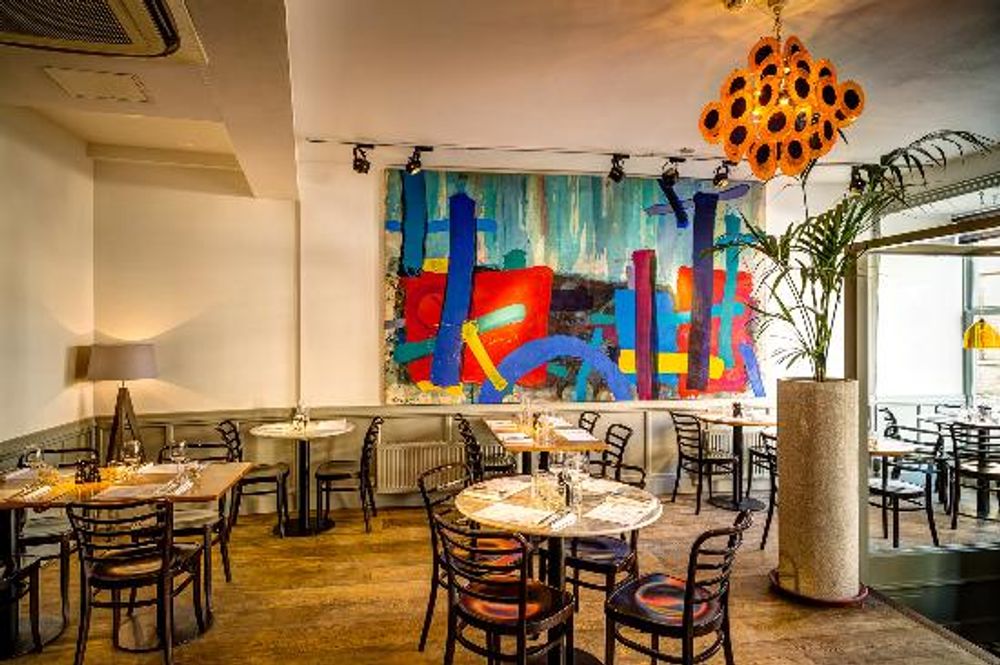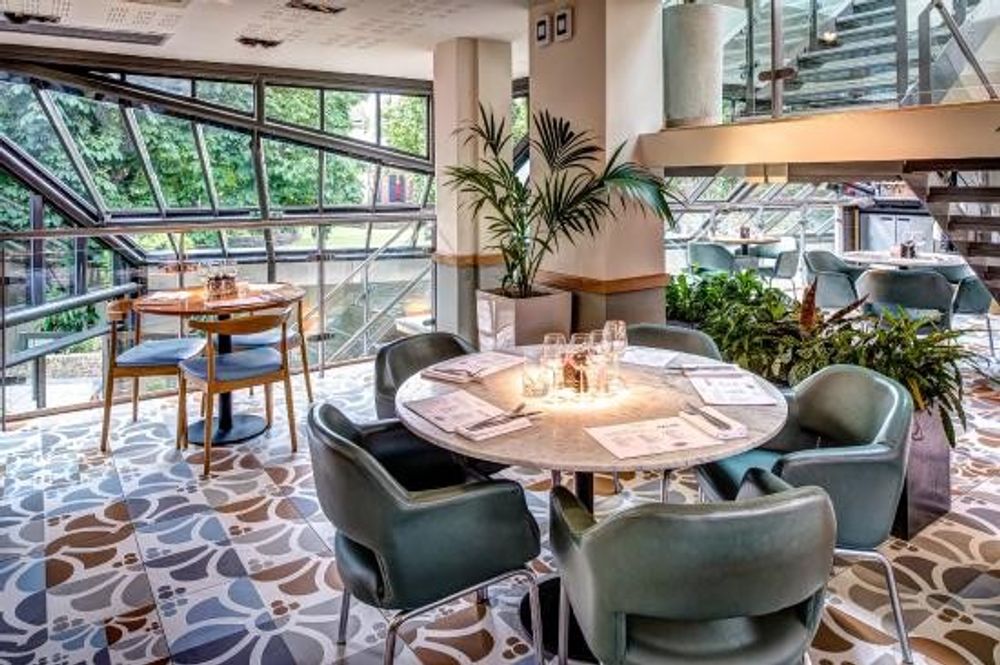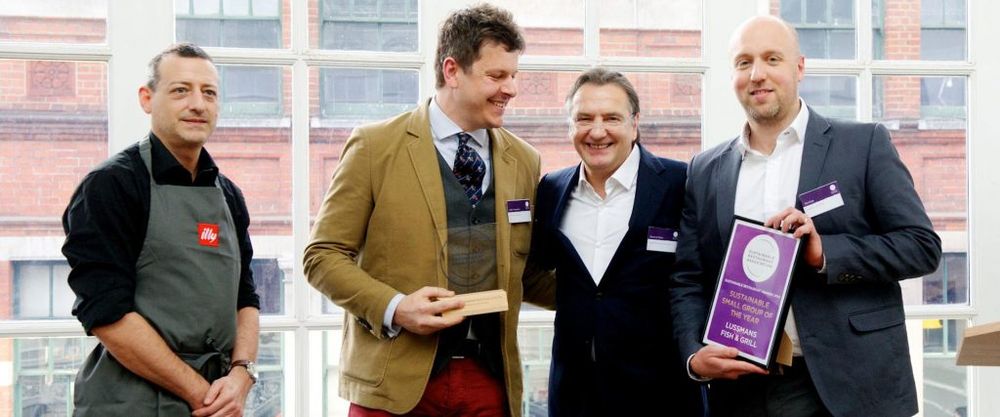Andrei Lussmann, owner of award-winning Hertfordshire-based mini chain of Lussmanns Restaurants, which have been described by Times restaurant critic Giles Coren as “everything a modern local restaurant should be”, says wine has a key role to play in the business.

Andrei Lussmann, founder of the five-strong chain of Hertfordshire restaurants puts his faith in his wine supplier Corney & Barrow
How would you describe your wine list?
It’s simple, classless, covers most demands and offers good value for money. We divide it up by price point, and I’m more than happy to empower our suppliers and for them to advise us, as they are the experts in their field.
You are working with Corney & Barrow. When and why did that relationship start?
We have been using Corney & Barrow since we first opened in 2002. The majority of people out there don’t speak the language of wine, so you have to rely on the expertise of your wine supplier. And Corney and Barrow produce consistently good table wines. The main reason I’ve remained with C&B is because they produce some very simple, straightforward uncomplicated wines pitched at our sort of profile – classy but classless and engineered at the right price. I’ve always believed that C&B have been doing it for longer than we have, they have more kudos, they are a wine merchant, if I put my own name on it rather than theirs I’d be losing touch with a very important part of that. We should support our wine merchants!
What is your best selling wine?
Our house red and white wines from Corney & Barrow are the best sellers for us. One of the reasons I was attracted to Corney & Barrow was because I wanted a good house wine. We stock about 10 to 15 Corney & Barrow wines, around half my list. A large number of our older customers would probably recognise the Corney & Barrow name from the C&B wine bars, which provides them some assurance about the quality of the wines, though the younger generation might not be so aware.

Lussmanns outlet in Hertford. There are currently five in the group with plans for a sixth
What does the Corney & Barrow name add to your list?
I think it assures our customers them that the wine they are buying is a quality product and that they are also getting value for money. I think the name also brings reputation, prestige and heritage. Many of our customers commute to the city every day, and are very familiar with the Corney & Barrow name from their wine bars.
Why did you choose Corney & Barrow as your initial supplier?
I actually worked for the company in hospitality back in the 1990’s and got to know their business and its wines. I was impressed by their product and expertise as well as the style of their management. It just seemed to be a good fit, and when I opened the restaurant it enabled me to carry on working with a product I knew and understood.

The St Albans branch of Lussmanns, which Times restaurant critic Giles Coren applauded for being “everything a modern local restaurant should be”.
Do you focus on any particular country/region?
I would like to, but with Brexit, it’s best to be versatile.
How adventurous are your customers in their wine choices?
I’ve tried listing anything unusual or bespoke or from a small parcel, but outside London if you are not setting yourself up as a wine bar customers are not as motivated as you’d like them to be. Our customers are affluent and well educated, but despite this they tend to stick to their tried and trusted favourites. It’s Malbec all the way, with a little bit of Picpoul, nothing too adventurous. However, I accept that in the future in order to improve we need to inspire and motivate them to be a bit more adventurous and get out of their comfort zones.
How often do you change your list, and how many wines do you offer by the glass?
I change the list on a quarterly basis, and we offer between 15 – 20 wines by the glass. It’s something we are working on, making sure the staff are trained up on that front and are fully behind it. I would say that sales are good, but we could do even better. We should sell more by the glass. I do throw away a bit here and there, and you need to track it and for it to be at the forefront of your mind.
Do you employ a sommelier, and how well trained are your staff in wine?
We are not a sommelier based business, though I would like Lussmanns to get to the point where anyone who has a question regarding the wine the staff should have a base knowledge to be able to deal with that. Staff undergo an induction session when they start, where they learn about the different regions and varietals, and what ageing does to a particular varietal, and then we send our key people such as head managers and waiters to do their WSET level 3. But essentially there is nothing better than getting a bottle of wine open and getting the staff to taste it and talk about it.

Paying more than lip service to the whole sustainability issue, Lussmans was awarded Sustainable Small Restaurant of the Year in 2014 and 2015, and runners up in 2016.
Sustainability is an issue that is close to your heart. Tell us a bit about that.
Yes, sustainability is a massive part of our ethos. I have always been very interested in the ethics of the business since day one. There are 200 disciplines we undertake to audit our business, from the light bulbs we use to our waste management, staff education to the provenance of our wine. We are one of the few high street restaurants in the casual dining sector that has such strong ethics and we are increasingly trying to work with organic and biodynamic producers. It’s all about a wine list that completes the meal experience. But we want it to be a default thing, whereby the sustainability of wines is standard, rather than a highlight if a wine happens to be organic.
Presumably you are a supporter of English wines, given your enthusiasm for sustainablity?
Yes, English sparkling wine taps into what we are doing at Lussmans. Three or four years ago we decided to stop selling Champagne in an attempt to get our customers to switch to Wiston English sparkling wine, and came under a lot of flak as a result of not selling the big names, but I think we may have been a bit ahead of our time as it didn’t work. We have since reintroduced Champagne and suffice to say our sparkling wine sales grew by 800%. However, we are now looking at reintroducing an English sparkling wine as I think awareness has increased sufficiently to make it feasible.
- Corney & Barrow sold its wine bars in July 2016 to Drake & Morgan whilst continuing to supply wine to the different outlets.









































